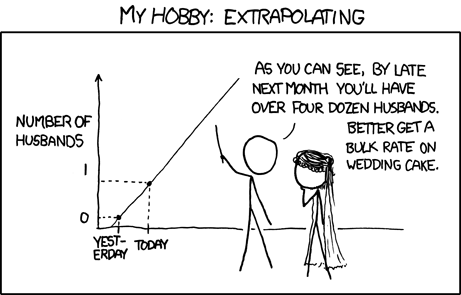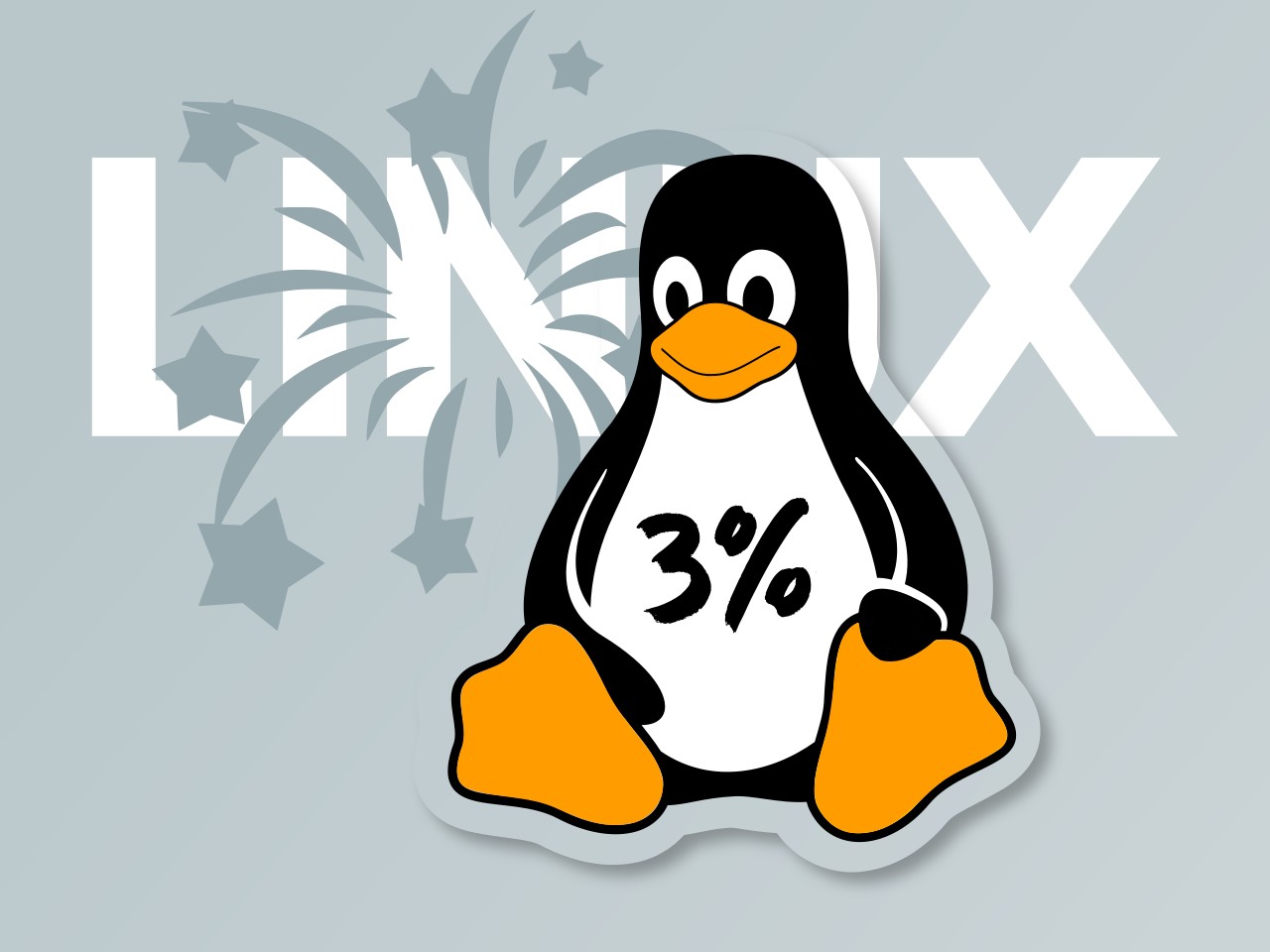- cross-posted to:
- [email protected]
- cross-posted to:
- [email protected]
By this logic, Linux will have 100% market share in 1000 years. Can’t wait!

But if it’s a steeply exponential function with a lot of noise in the history… it could be even this year!
Is this maybe finally the year of the linux desktop!!?
can’t wait for it to happen
Linux has a huge market share in servers. Most phones use a derivative of Linux. A lot of embedded systems run Linux. The desktop PC is basically the only niche where Linux doesn’t dominate.
deleted by creator
Let’s not forget, this is in the slowly vanishing desktop market. Linux is already in every Android phone and powers most of the web too. We are all dependent on Linux every day even if it’s not on the desktop.
The way Linux is crippled in Android is a perversion of how free software should be used. Your Android phone runs Linux, wow, is your freedom respected?
Thanks to this perversion, Linux also powers killing drones, weapons of mass distruction, and all the evil things this world has to offer.
This reported 3% is thanks to uncountable coder-hours devoted by crowds of volunteers, and employees at many companies, notably but not at all limited to Canonical, Red Hat and Collabora, and put into developing massive, explicitly Linux-on-desktop software packages like the KDE and GNOME projects, Wayland, X.org, freedesktop, Cinnamon, Budgie, Xfce, (many more that I can’t think of or list here), and the numerous distro developers and maintainers at Debian, Ubuntu, Fedora, SUSE, Arch, etc. who put effort into packaging and keeping fresh these softwares for end-users to download for (mostly) free, competing against for-profit operating system desktops from Microsoft and Apple that have significant advantages in OEM bundling and testing, marketing, system incompatibility both intentional and inadvertent.
That so many people put so much effort over multiple decades into producing a range of products that earn many of them no profit whatsoever and which has barely made a dent in the marketplace it competes, for over two decades, is a testament to optimism about the human spirit, ideology, stubbornness, and the kind of pride and satisfaction of a service rendered for public consumption that is almost alien to modern capitalism.
Doing my part.
me too
We did it Feddies!
I’ve been hearing “This is the year of Linux on desktop” since at least 2002…
1%/10 years
>=50% to be “your year”
2493 will be the year of the Linux desktop!
Edit: The edit WAS NOT a math error :P I had to escape the “>”
I’ll remember to celebrate that :D
Yay, 970 to go. WHOOOOOO!
1000‰! Let’s gooo!
973*
Is there something in particular that makes 3% big?
It’s a very big market. For example, Firefox has around the same market share in browsers.
lol
Let’s admit it, it’s a pity celebration. I think the only thing that’s special about it is that Linux has never crossed the 3% threshold before, whereas 2% was an on and off thing? Disclaimer, I did not do my research and I’m relying on very vague memories of those numbers.
As someone who has FINALLY made the switch to contribute to that (all it took was several whole days of the summer devoted to constructing a Void environment from scratch to host VMs with GPU sharing), I gotta say the SteamDeck must be putting up gooood numbers, cause there’s no way enough people full-time switched.
deleted by creator
From my understanding, statcounter gets this data from web analytics. Does this mean the data is more or less legit? I don’t know if Steam Deck users browse internet much, though I doubt this device’s market share is large enough to affect the statistics.
What’s that as a hard number and how does it account for dual users?











